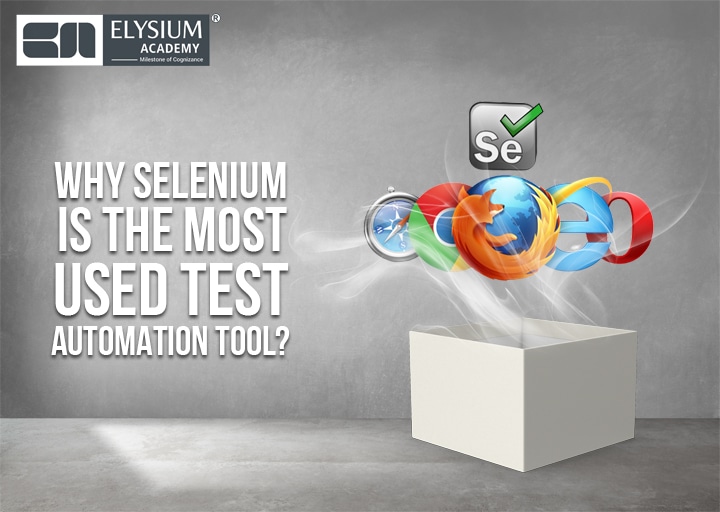Selenium Certification Training
Selenium Certification Training: The rapid process adaptation in the software development process hastens the overall software development time, time-to-delivery (TTD), time-to-market (TTM), and eventually lowering developmental costs. Selenium Certification Training is to guarantee quality and efficiency in the testing process, the need for automation testing tools has increased dramatically. Selenium is one of the most widely used to test web applications of various automation testing tools.
What is Selenium?
Selenium is the portable open-source web application testing framework. The Selenium framework utilizes a default test domain language as “Selenese” for writing test scripts, and it also supports the testers in writing the test scripts.
The selenium test suite consists of the following:
- WebDriver
- RC or Remote Control
- IDE
- Selenium-Grid
Platforms and Browsers supported by Selenium Certification Training
As designated in the Selenium official sources guide, here is the table of the platforms and browsers supported by Selenium:
- Google Chrome
- Internet Explorer 7, 8, 9, 10, and 11 on appropriate Vista, Windows 7, Windows 8, and Windows 8.1. IE 6 is no longer supported. The driver keeps running 32-bit and 64-bit versions of the browser where applicable.
- Firefox
- Safari
- Opera
- HtmlUnit
- phantom
- Android (with Selendroid or appium)
- iOS (with ios-driver or appium)
Why Choose Selenium as Automation Tool?
Selenium supports testers in writing a script in one programming language and running (re-use) the same test scripts on multiple browser platforms. WebDriver is converting part of the W3C standard for all browsers, and thus developing browsers will automatically support Selenium.
While there are many goods Selenium testing offers, here are some of the major benefits that Selenium brings
Transparency
Assures transparency and agility across cross-functionality terms like SDLC Process
Platform Independent
Avoids the software tester’s time to test scripts for each platform as it follows the origin of writing one test script and runs on any platform.
Integrated with Agile, DevOps, Continuous Delivery workflow
Selenium was following the Agile and DevOps account before these words were even put into practice. The whole nature of Selenium falls perfectly into the main sources behind Agile, DevOps, or Continuous Delivery.
Supports mobile testing
With Selenium, you can also test native, hybrid, or web mobile apps, though you’ll need additional software. There are two main options – Appium and Selendroid. They are based on Selenium so that developers already versed in it can apply the same principles when testing mobile apps.
Both tools are open source and have great community support. The main difference is that Appium testing supports iOS, Android, and Windows devices, while Selendroid focused exclusively on Android. Selendroid also bundles with Appium so that when you test for Android versions 2.3 through 4.3, the program will automatically switch to Selendroid.
Wide range of supported languages, platforms, and browsers
The flexibility that Selenium provides is almost unmatched in the test automation world. First, we have ten supported languages: Java, Ruby, C#, PHP, JavaScript, and Python – all among today’s most used programming languages. It’s also the only mainstream tool that covers Linux testing.
Advantages of Selenium Tool
The Selenium tool suite offers several possibilities for test automation testing courses.
On a high level, Selenium can help you test software by automating tests. As argued to manual testing, automated testing is beneficial as it allows you to complete testing tasks faster and with fewer errors.
Selenium has converted one of the most popular testing tools, mainly because it’s an open-sourced framework (making it free and accessible to all). Selenium Certification Training enables experienced testers to automate many testing processes, such as functional tests and regression tests.
Advantages of Selenium are
- It’s free, as opposed to most other automation tools that involve licensing costs.
- It’s open-sourced, allowing for increase and modification of source code.
- Selenium carries multiple programming languages.
- Maintains most operating systems.
- Encourages all major browsers.
- Has community support due to the large network of users.
- Has lots of integration options, allowing, e.g. parallel testing and reporting.
To Conclude Selenium Certification Training, Selenium is a universal use case. It doesn’t overshadow all of the other test automation tools, especially if you have the budget for them. But its monopolizing nature makes you think twice before you look the other way.














